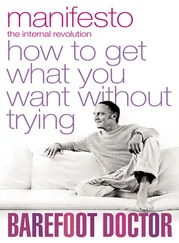"Where are these gramophone records?"
"His and Tilda's rooms."
"Well, I'm seeing things in a different light now. All right, how about this? To make amends, Hans should bring those gramophone records to the house. And Tilda should be here, too. Her mother's gone, Wyatt."
"Tilda doesn't know that yet. She's been waiting for news just like you. She doesn't know Secretary Macdonald telephoned."
"You know the best thing I can do for Tilda, so recently in wedlock? I should try and knock some sense into my son-in-law's head. Maybe he and Tilda should go to Montreal. Or to someplace. Sit out the war, and he could tell people his accent's Swedish or from Denmark. See, considering what heroic measures should be taken, like the radio said. I think it's my father-in-law responsibility to point out it's dangerous times for a German in Nova Scotia. See, that'll be the give-and-take, right there. He'll give me the gramophone records—'Thanks, thanks'—and I'll give him solid advice."
I drove to the bakery and went directly upstairs, where I found Hans and Tilda each packing a suitcase.
"Navy Secretary Macdonald just now telephoned Uncle Donald," I said. "Aunt Constance isn't coming home."
"I knew it was true," Tilda said. "In my heart of hearts, I knew." She and Hans embraced, but Tilda got a bit frantic and suddenly held him at arm's length. "I have to go see my father."
"Yes, he's a widow now," Hans said.
"I know he wants to see you, Tilda," I said. "In fact, he wants us all, you, me and Hans, over tonight. He said Hans should bring the gramophone records."
"You told him about that?" Hans said.
"I was speaking on your behalf, Hans."
"We're taking the morning bus out," Tilda said. "It's for the best."
"How's that?" I asked. "How for the best?"
"The people in Middle Economy, they're good, gentle people for the most part. But they don't know Hans."
"There's not been enough time to know him."
"It all adds up to the same thing, Wyatt," she said. "No body's fault. They just don't know him. They don't yet know us as a married couple. And now look what's happened. The U-boat that killed my mother will be in Reverend Witt's sermon on Sunday, mark my words."
"I don't wish to make anyone here uncomfortable," Hans said.
"Have you listened to the radio, Hans? The whole goddamn world's uncomfortable!" I said. "What's uncomfortable got to do with anything?"
"Shut up, Wyatt. Just shut up," Tilda said. "Listen, Hans has a university friend in Vancouver, graduated last year. Hans telephoned him, and he'll take us in."
"Vancouver — all the way to the west coast of Canada," I said.
"Yes, Wyatt, that's where Vancouver's located," she said.
"All right, all right, all right, I can see your thinking. Still—"
"We counted our pennies," Tilda said, "and it's just enough, or almost."
"All right. I'll drive you to the bus personally," I said. "But you have to promise to come to the house tonight. Jesus Christ on the cross, just now I don't know any of what's what anymore."
"The world's a shithole," Tilda said. "That's what."
"About leaving tomorrow — your mind's completely made up?"
Tilda sighed deeply and said, "It's two weeks and five days by bus to Vancouver. There's a number of transfers. Off one bus, onto another. I won't promise you a postcard along the way, but I promise one once we've arrived, Wyatt." She went into their bedroom, and I could see her scrutinize each item of clothing in the bureau, rejecting, accepting. Either way, everything got neatly folded and put back in a drawer or into her suitcase. And I thought, Like mother, like daughter.
I went downstairs first and told Cornelia that Constance was gone. We all shared a supper of sandwiches and tea, the talk smaller than small, all life-and-death subjects avoided. Cornelia cleared the dishes. Then Hans said, "Tilda, I'd like to have a short time with your father alone, please."
"You sit with me awhile, then, Tilda," Cornelia said. "We'll talk things over."
"One hour at the most, Hans," Tilda said. "I mean that as much as I've ever meant anything. In one hour I'll be at my house."
"Why not let's walk there together, Hans," I said. "I'll leave my car for Tilda."
"Good," Hans said. "Good, good, good. Let me get the gramophone records and we'll go."
I took a flashlight from the glove compartment of my car. When Hans returned carrying the records, wrapped in a couple of shirts, we set out along the road. The weather was typical for October, cold rain. Hans tucked the records inside his overcoat. Our hair was immediately soaked, and I said, "Oh, well, it's not that far." The flashlight beam made almost a solid tunnel out ahead, and rain could be seen etching across it slantwise. We bent into the wind and walked at as steady a pace as we could. Finally, still out on the road but directly across from the house, Hans threw his arm over my shoulder and said something, but I couldn't make it out. "What?" I shouted.
Hans cupped his hands over my ear and said, "This is the same kind of night our child was conceived. Tilda is quite certain of which night it is on the calendar. We were out on the road and we saw the library. Tilda had a key, so we escaped inside. We didn't leave till morning."
Hans then crossed the road, so there was no chance for me to reply, let alone take in his news. I hurried to catch up. There were a number of lights on. Thick gray smoke was torn to rags as it rose from the chimney, gone into the darkness. Hans waited on the porch, and when I joined him I opened the front door, heard the radio, stepped in and said, "Uncle Donald?"
From behind me I heard, "You're not sleepwalking, are you, Hans?"
"No, sir, I'm not," Hans said, laughing a little. "Why would you think so?"
I turned to see my uncle. He'd arrived unnoticed around the side of the house. Hans hadn't seen him yet; he half smiled and began to unbutton his overcoat, no doubt reaching for the gramophone records. That was when my uncle brought a toboggan runner down on Hans's head. The sound was sickening. I can't compare it to anything.
It took that one blow, is all. Hans collapsed on the porch. The gash was deep, and blood matted with the rain in his hair, and as my uncle stood there, almost transfixed by his deed, I punched him in the forehead, then punched him again near his left eye, and this caused him to drop the runner. I picked it up and struck my uncle with it across his knees, and he buckled but didn't fall. He stumbled back a few steps. Barely able to keep his balance, he said, "Blindsiding the man wasn't what I'd intended."
"You wanted to look him in the face, is that it, Uncle Donald? What'd Hans Mohring ever do to harm you?"
I went unsteadily down the porch steps. Then I vomited, violently, and dropped the runner. Neither my uncle nor I picked it up again. I leaned against the house and retched my guts up, and the only thought I had was, Tilda might've seen this.
I stepped back up to the porch. Hans lay on his back, his face ghostly in the porch light. He loosed a kind of gurgling moan, blood frothed on his tongue and dribbled down his chin, his right arm twitched, his mouth opened and closed with a popping smack of his lips, twice, three times, like he was attempting to catch raindrops. My uncle reached into his back trouser pocket, removed his World War I revolver, pressed it against Hans's chest, said "Mercy on his soul," and pulled the trigger. The shot was muffled by Hans's overcoat and the gramophone records inside. Hans jolted, arching his back, then fell flat to the porch again. Even I, who'd never seen a dead person close up, outside a coffin, knew that Hans Mohring was dead.
My uncle tossed aside the revolver. He slapped my face hard and said, "Pull yourself together, Nephew!"
Читать дальше












